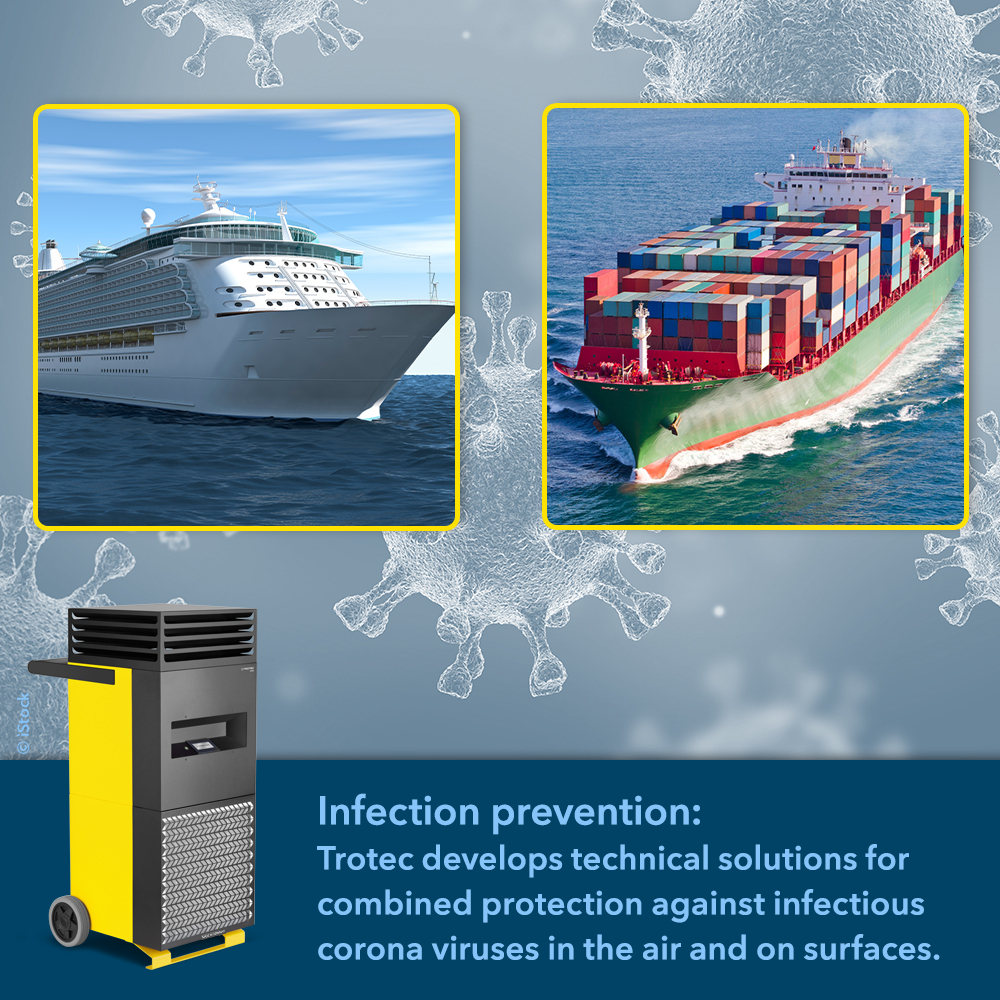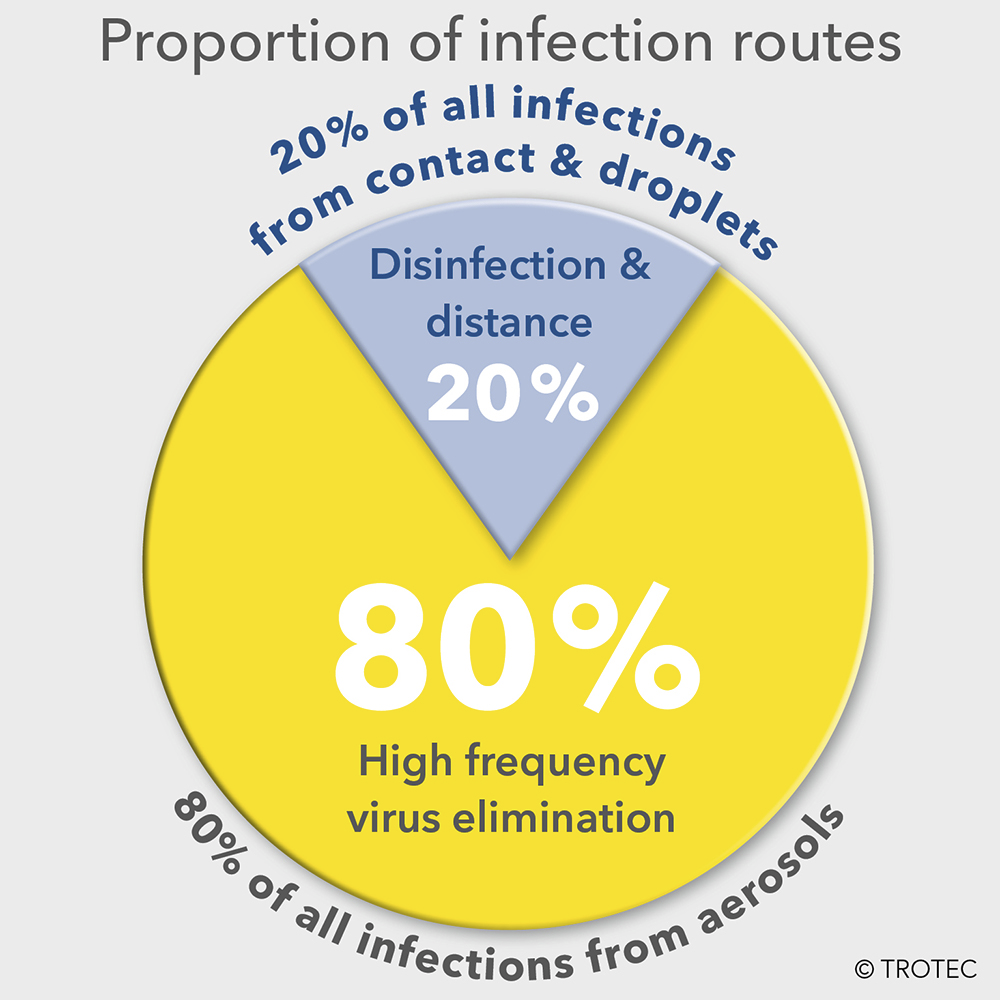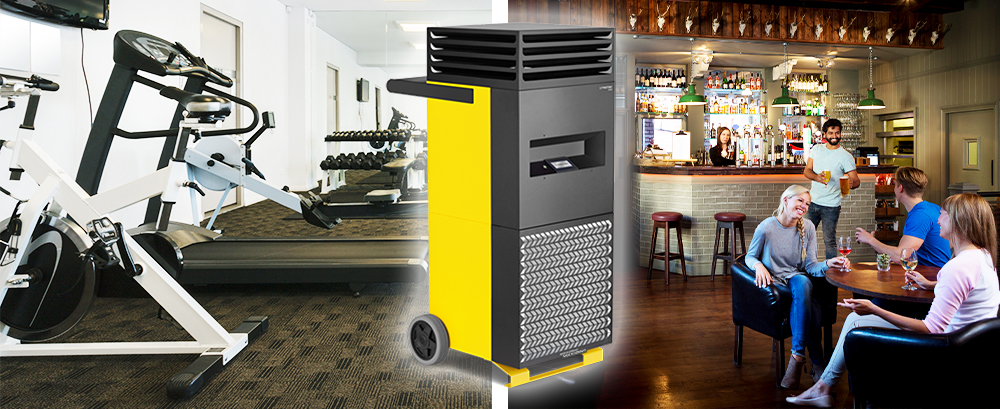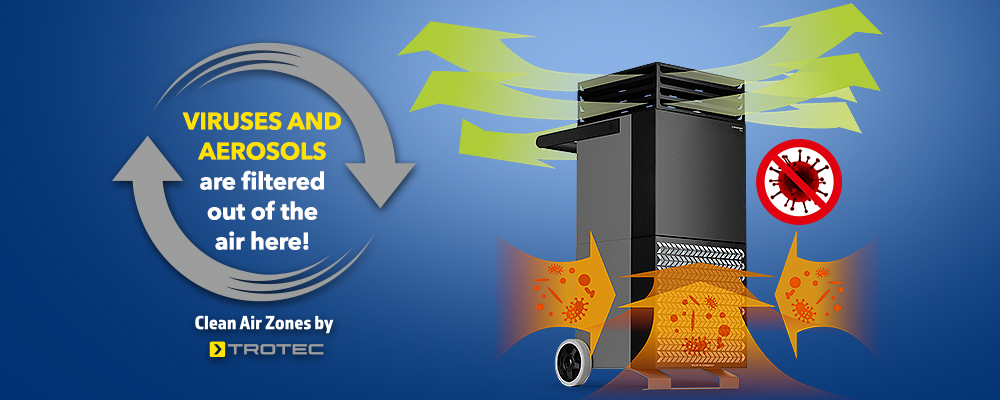 According to American studies, the COVID-19 pathogen Sars-CoV-2 can survive for several days on contaminated surfaces and lead to smear infections with the coronavirus. In addition to the main airborne transmission pathways, droplets and aerosols. Several corona outbreaks at sea suggest that this danger of contact infection is not just a theory.
According to American studies, the COVID-19 pathogen Sars-CoV-2 can survive for several days on contaminated surfaces and lead to smear infections with the coronavirus. In addition to the main airborne transmission pathways, droplets and aerosols. Several corona outbreaks at sea suggest that this danger of contact infection is not just a theory.
Mysterious Corona outbreaks on ships
While cruise companies worldwide discontinued operations due to the Corona pandemic, the Norwegian shipping company Hurtigruten resumed operations in June. But now the first Hurtigruten ship, the passenger ship “Roald Amundsen”, is back in port, after 36 crew members tested positive for the corona virus. The 380 or so passengers were subsequently informed of the incident and have to remain in quarantine for ten days. Norwegian media reports that the crew members only tested positive for the virus after the passengers disembarked.
Infectiologists in Argentina are also faced with a mystery as they investigate a Corona outbreak on the fishing vessel “Echizen Maru”. All crew members were tested negative for Coronavirus before departure and then spent 14 days in quarantine in a hotel. On their return after 35 days at sea, 57 of the 61 crew members tested positive for the virus. In both cases, there is a suspicion that the crew members could have been infected via contaminated surfaces such as door handles or equipment. An incubation period of this length has never been mentioned in any study.
Coronavirus still detectable on surfaces for weeks
Already at the beginning of the worldwide Corona pandemic, the “Diamond Princess”, a cruise ship with more than 2500 passengers and about 1000 crew members, was quarantined due to a Corona outbreak among the passengers. The outcome after more than 2 weeks of quarantine was alarming: 705 infected, six dead. Coronavirus had therefore continued to spread on the ship despite quarantine and disease control measures. This incident was investigated by scientists from the US Centres for Disease Control and Prevention (CDC).
Even 17 days after the evacuation of the ship – but before the subsequent disinfection – residues of coronavirus RNA were found in the cabins of infected passengers. The investigation shows that the coronavirus can survive on surfaces much longer than previously assumed. As well as door handles and lift controls, everyday objects are possible sources for a coronavirus smear infection.
All transmission paths must be taken into account when protecting against infection
Hygienists and virologists therefore warn that all transmission pathways must be sufficiently taken into account when it comes to infection control. Focusing solely on droplets, as has long been the case, or now increasingly on infectious aerosols in the air, cannot stem the spread of the virus. Reliable hygiene measures and appropriate technical solutions are necessary to minimise the overall risk of infection.

Novel technology promises a remedy: Thermal disinfection with HEPA high-performance air purification
The new TES 200 thermal disinfector provides reliable protection against contaminated surfaces and infectious aerosols in the room air. The combined infection prevention technology enables uncomplicated and complete surface disinfection of all surfaces in a room, especially on cargo and passenger ships. In addition, the mobile device allows for high-performance air purification with special H14 HEPA filtration to filter infectious aerosols from indoor air possible – before they are inhaled unnoticed. Because science and research agree on this point. In addition to droplet and smear infection, the coronavirus is also transmitted via inhaled indoor air.
The danger is in the air
Virus-carrying microdroplets, and the even more miniscule aerosols, are considered to be the main carriers of the SARS-CoV-2 virus. More precisely through so-called aerosols, a mixture comprised of gas (usually air) and solid or liquid constituents, which contain viruses in infected persons. These tiny floating particles are produced in the lungs and are released into the air mainly when breathing and speaking. While larger droplets fall to the floor after approx. 1.5 metres due to their weight (hence the social distancing rule of 1.5 m), feather-light aerosol particles can remain suspended due to their small size (approx. 0.3-0.4 µm) for several hours in the air, where they are circulated around the room by the ventilation systems – and unwittingly breathed in even many meters away.
Increased risk of infection on cruise and passenger ships
A critical factor in the risk of coronavirus infection is how long the virus-laden aerosols remain in the room air. This is because unlike outdoor air, where aerosol mixtures are diluted and blown away by the movement of clean fresh air, the aerosol concentration indoors remains continuously high. This is the case in the various restaurants on board, but also in all other closed interior areas. The more aerosols are suspended in the air – and the longer they remain so – the faster these enter the body via the respiratory tract to cause an infection in the lungs. Even in only one cubic centimetre of air about 50,000 particles such as dust, pollen as well as bacteria and viruses can be found. And as each additional person in the room breathes, the aerosol concentration in the room increases by thousands of particles per minute.
The medical sector as role model: thermal disinfection and air purification
In hospitals and medical practices, thermal disinfection and purification high-frequency air purifiers have long been regarded as proven protection against infection. Medical equipment is kept sterile and germ-free by means of thermal disinfection. The procedure is even approved for the decontamination of hygiene-sensitive respiratory masks. For example, for repeated use of disposable masks in medical applications. And what disinfects the syringes at the doctor’s and keeps operating theatres in hospitals free of viruses and germs is now also a mobile solution that reliably removes viruses and germs from all surfaces in the room and, if necessary, even from the indoor air.

No additional effort: heat treatment replaces disinfection by wiping
In simplified terms, the novel TES 200 thermal disinfector primarily treats the indoor air and generates different temperature phases in the range of 60 °C – 70 °C during thermal treatment through a complex heating system. This heating process leads to the inactivation of any SARS-CoV-2 viruses that may be present on door handles, tables, objects and all other surfaces. Time- and personnel-intensive disinfection by wiping is not necessary.
In practice, this is easy to do: The mobile applicable device heats the room temperature fully automatically according to a preset program, so that all viruses and bacteria present on surfaces and objects are inactivated within a few hours. If required, thermal disinfection can also be carried out overnight.
The advantages of thermal disinfection at a glance:
- Whole rooms are free of germs and viruses after only a few hours
- Seamless disinfection of all surfaces – without personnel deployment
- An additional wipe disinfection of the surfaces is not necessary
The coronavirus poses an enormous challenge, especially for hygiene measures on cruise ships. Many people share different areas on board. Shipping companies are already starting cruises again for financial reasons, but now with distance markings and microbial sampling that is evaluated directly on board. The TES 200 combined surface and air purifier supplements these protective measures.
Because now it is not only a matter of finding our way back to the normality we are used to. Protecting the health of employees and passengers must also be taken into account in the future. The TES 200 makes this immediately possible in several ways.
Combined surface disinfection and HEPA virus filtering
The TES 200 was developed in the Heinsberg district, the first German Corona hotspot – immediately after the first Corona cases in Germany became known. The primary objective of the Trotec engineers was to develop a device that was as multifunctional as possible to combat the new type of corona virus. In combination with a H14 HEPA virus filter manufactured exclusively by Trotec, the TES 200 is not only suitable for thermal disinfection but also for effectively keeping the room and breathing air clean.
The high-performance air cleaning concept behind the TES 200 is based on two foundations:
High air capacity (air exchange up to 20 times per hour)
On the one hand, aerosol concentration in the room air is continuously diluted with virus-filtered HEPA ultrapure air. To this end, the device has a high ultrapure air capacity – previously unmatched in mobile air purifiers – which enables an air exchange rate up to 20 times per hour. The suction of contaminated room air close to the floor creates a uniform flow field, so that even air from more distant areas is efficiently sucked in and cleaned. The clean air released by the TES 200 is discharged vertically to the ceiling so that people do not find it unpleasant. A significant reduction (dilution) of the aerosol concentration in the room air can be observed just a few minutes after the high-performance air purifier is put into operation.
High filter performance (99.995 % separation efficiency)
In addition, airborne viruses and bacteria are first separated in an innovative, heat-resistant HEPA particulate filter, and then cyclically killed off by thermal decontamination. The thermal filter decontamination demonstrably reduces the pressure loss of the integrated H14-HEPA filter and thus ensures constantly high filter performance. Developed by Trotec, this special Protection Class 14 filter exclusively is distinguished by its separation efficiency of 99.995 % for particle sizes up to 0.3 µm. Even permanently high aerosol concentrations in the room air did not lead to a reduction in filter performance. Thanks to these features, H14 high-performance filters are even used to produce clean air in operating theatres and in similar hygiene-sensitive areas.
A safe investment in health and infection protection
There is no better protection for employees and passengers. Optimally virus and germ-free surfaces as well as permanently filtered indoor air, to protect against the inhalation of infectious viruses.
The TES 200 thermal disinfector is available from £4,878.88 in the Trotec online shop and in the Trotec store in Heinsberg.
Visit us at the Trotec store in Heinsberg
If you would like to find out more about our technical solutions for protection against Corona infections, the TES 200 and the TAC V+, please visit us at our Trotec store in Heinsberg. Here you can find out first-hand how the risk of Corona infection can be reduced to almost zero by using innovative Trotec technology.

Trotec STORE
Grebbener Straße 7
52525 Heinsberg
Germany
Tel. +49 2452 962-400
E-Mail: store.heinsberg@trotec.com


